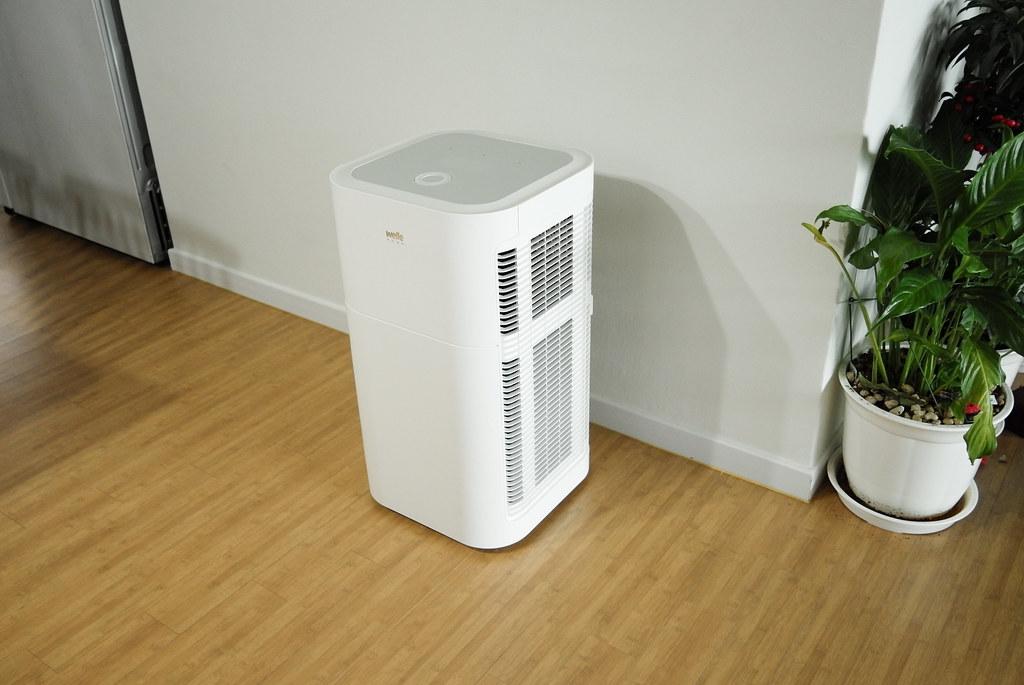A June article from Scientific American highlighted a serious byproduct of coronavirus lockdowns: exposure to indoor air pollution. As outdoor air quality improves (for example, as much as 30 percent reduction

of air pollution in the northeastern U.S.), our added time indoors can increase the levels of volatile organic compounds we’re exposed to. There are several tricks to lowering the levels of air pollution in your home and improving your overall Indoor Air Quality (IAQ), but our favorite is utilizing a stand-alone air purifier.
Household cleaners, like bleach solutions, animal hair and dander, and cooking fumes can all accumulate in the air inside a home, potentially leading to respiratory issues after long term exposure. Ventilation can help, especially alongside a range hood or cooking vent in the kitchen, but adding an air purifier to the space can maximize your IAQ. In the kitchen, it’s important to note that while gas stoves emit more pollutants than an electric stove, the electric stove will still emit pollutants in the first few minutes of its use by burning the layer of dust, food residue, and organic matter that co
Everyone can benefit from cleaner air with an air purifier, but if you’re looking for specific information on the pollution in your home, try an at-home IAQ test! Additionally, home energy-efficiency upgrades, such as better home insulation and sealing, can improve your home’s IAQ by reducing contaminants and controlling moisture. As always, if you’re concerned about the air quality in your home, you can reach out to your local home services providers. With these tips in mind, we can all breathe a little easier while we spend more time at home.ver its surface.
You may have considered, or have already installed, an HVAC filter as a means of improving your IAQ. Our technicians actually recommend stand-alone air purifiers for several reasons. Mainly, air purifiers utilize high-efficiency particulate-absorbing (HEPA) technology to catch small pollutant particles, up to 99.97% of allergens, dust, mold, and other smoke and odor particles, to filter the air. While HVAC filters can collect larger particles, they miss smaller particles and run less efficiently than a purifier. HVAC filters can’t utilize the same HEPA material that purifiers can, as it would restrict airflow in your home and cause accelerated wear and tear on the HVAC system.
